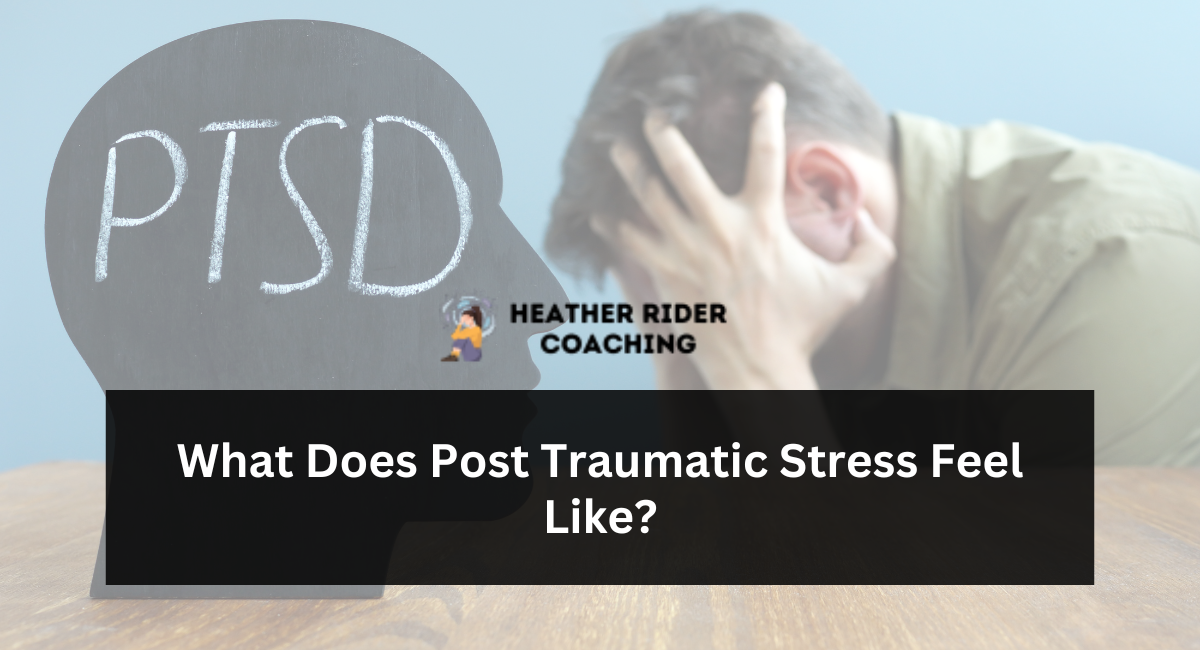People who have post-traumatic stress disorder (PTSD) typically develop it after being exposed to or witnessing a traumatic event, such as war veterans or people involved in car accidents and other forms of disasters. It often brings feelings of fear, numbness, and hyperawareness.
Certain triggers can trigger symptoms, including sights, smells, sounds, or thoughts. For instance, war veterans could be affected by hearing the sound of car backfires that recall gunfire from combat missions.
Symptoms of PTSD
Once trauma has taken place, symptoms may persist for over one month and cause significant distress; at this point, it may be beneficial to visit a mental health professional, like a psychiatrist, psychologist, or social worker, to evaluate them and establish whether you may have post-traumatic stress disorder (PTSD).
PTSD symptoms typically include intrusive thoughts, memories, and nightmares that trigger flashbacks to an event; intense emotional and physical responses when reminded of trauma such as sweating, heart palpitations, or feelings of anxiety; feeling flat or numb; avoiding people, places, or things which remind of your trauma; negative changes in thinking such as feeling angry, afraid, guilty or hopeless; as well as having decreased interest in activities you used to enjoy before.
Psychotherapy (talk therapy) is the cornerstone of treatment for PTSD, particularly cognitive behavioral therapy. CBT helps individuals recognize and change any detrimental thought patterns that lead to troubling emotions, behaviors, or self-blame. Medication such as antidepressants or tranquilizers may be prescribed along with psychotherapy sessions to lower anxiety levels, relieve insomnia, or treat agitation.
Numbness
Numbness (commonly referred to as paresthesia) is the sensation loss resulting from nerve injury or disorders like carpal tunnel syndrome, herniated discs in the spine, or some drugs. Tingling can also indicate that MS has affected nerves, reducing their ability to transmit signals back to the brain.
Numbness in an arm or leg on one side of your body could be a telltale sign of a stroke. Seek medical assistance immediately if this occurs to ensure a positive outcome.
Numbness can make you less aware of when your feet and hands are becoming cold or hot, cuts that won’t heal quickly enough, or injuries that could lead to dangerous infections. People living with post-traumatic stress disorder (PTSD) may try to avoid situations that trigger flashbacks of past trauma by staying away from crowds or busy places where driving might start flashbacks; they might also try taking drugs to manage symptoms more easily.
Avoidance
Although burying uncomfortable thoughts and emotions may seem helpful, avoidance is an ineffective coping strategy. Avoidance only creates more anxiety and stress as discomfort is forced out. Avoidance also often leads to unhealthy escape mechanisms like substance abuse, daydreaming, or engaging in relationships that do not meet our emotional needs.
People living with post-traumatic stress disorder tend to avoid people, places, and situations that bring back painful memories of the trauma experienced. Furthermore, they may refrain from discussing it with loved ones and confide their troubles in confidants; this can cause feelings of isolation among loved ones and family.
If someone you know has post-traumatic stress disorder (PTSD), listen carefully and provide support. Encourage participation in positive activities and events and let them know you’re available if they wish to talk when ready. If they want to try new coping strategies or treatments, offer to assist them in finding clinical trials that might help them. In that case, clinical trials are research studies designed to find innovative approaches to prevent, detect, or treat diseases and conditions.
Distress
Distress can be an intense emotional reaction that feels like it is taking over your life, such as feeling down and struggling with sleep. Some individuals find themselves replaying the experience in their heads or having nightmares related to it.
Your emotions may include feeling angry and upset all the time or becoming increasingly distant. To best care for yourself, eating well, getting enough rest, exercise, and relaxation should all be prioritized. Some individuals with PTSD find support groups beneficial.
Traumatic events include anything that puts your physical or emotional safety in jeopardy, such as an accident, war, natural disaster, or the death of a loved one. After such events occur, symptoms may appear shortly after that and last up to several months post-event; you should contact a healthcare provider, such as your GP or mental health practitioner if your symptoms cause significant distress and disrupt work relationships and daily living activities.
Conclusion:
Experiencing post-traumatic stress can feel like navigating a storm within oneself. The emotional turbulence, flashbacks, and hyperarousal create a complex landscape of distress. It’s an internal battle where memories, fear, and anxiety collide. Yet, understanding, support, and professional help can pave the way toward healing and rebuilding a sense of safety.
